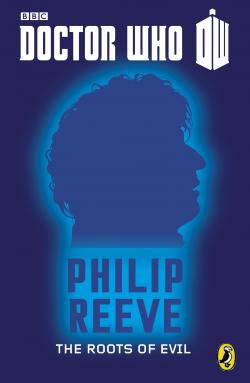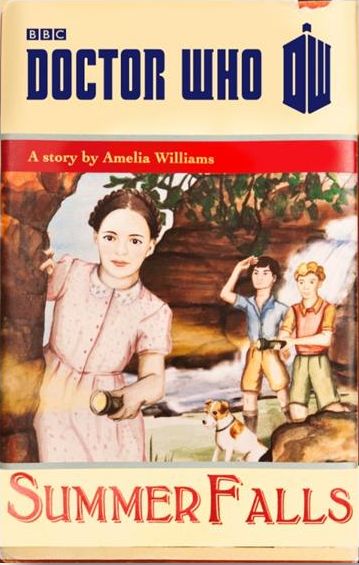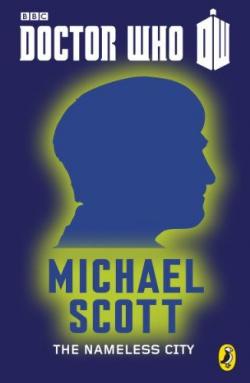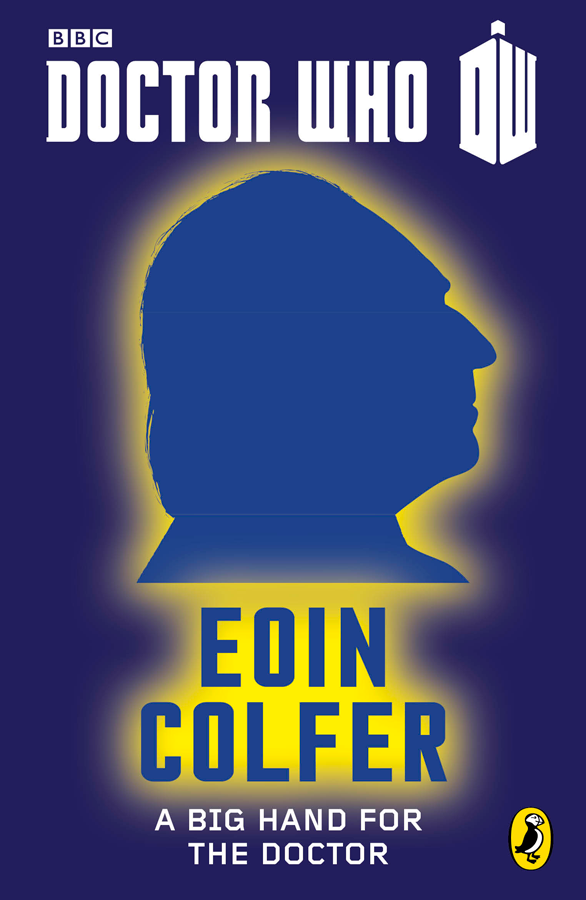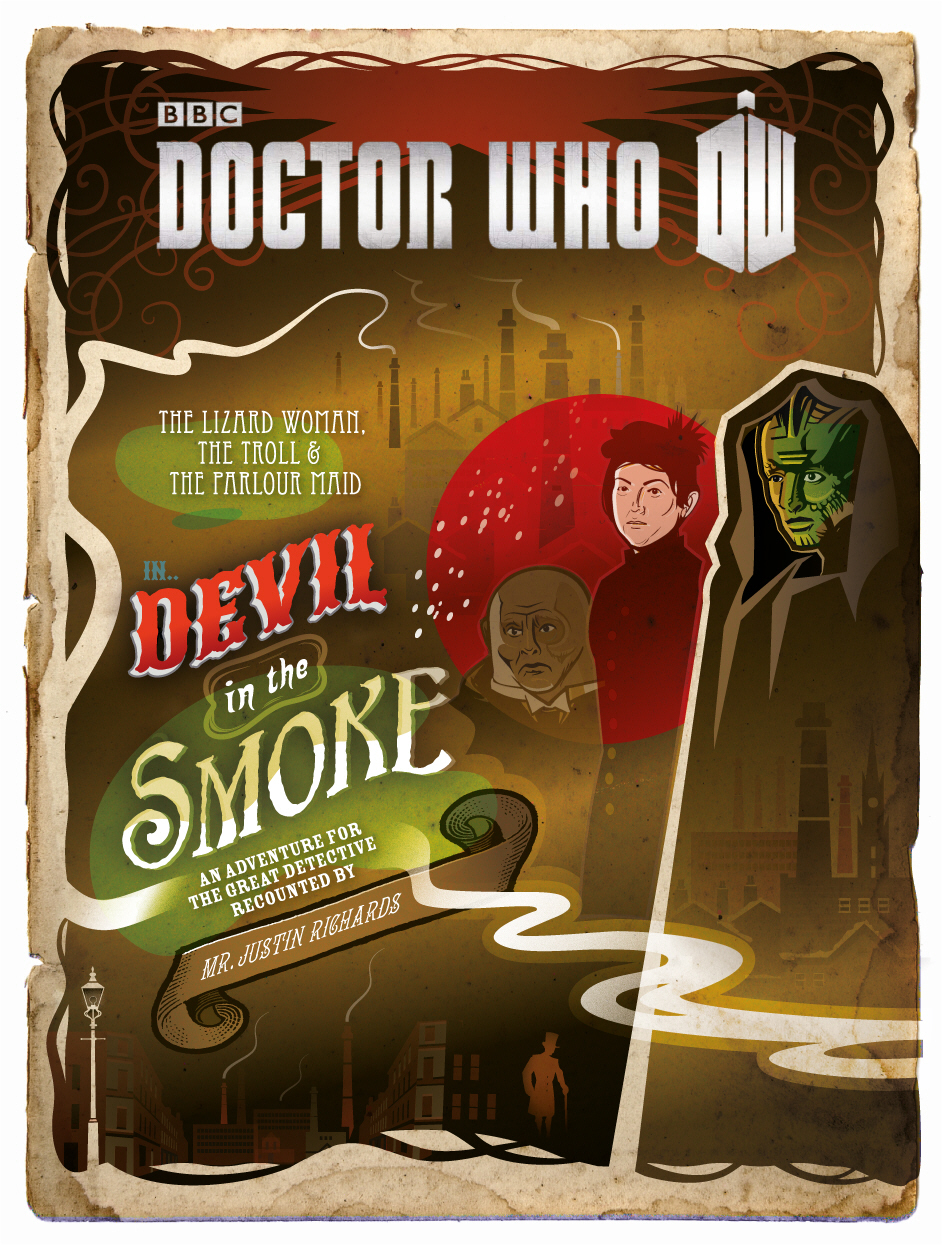The Roots of Evil (Puffin Books)
Friday, 26 April 2013 - Reviewed by Matt Hills
This review contains plot spoilers and is based on the UK edition of the ebook.
Philip Reeve has won many awards across his writing career to date, and reading this month’s e-short it’s easy to see why. As well as effortlessly capturing the spirit of a fourth Doctor and Leela story (it feels like something developed by Hinchcliffe and Holmes but made by Graham Williams… with a budget), Reeve’s own authorial voice also rings out loud and clear. When ‘name’ authors work on non-TV Who there can sometimes be a tussle between different incarnations – will it be a Michael Moorcock novel, or a Doctor Who story, for instance. But in this case, there’s a seamless integration of something that’s at once very “Reevian” but also contains dialogue which wouldn’t feel out of place in a classic Chris Boucher script. Leela’s curt explanation of what a scarf is, for example, offers up particular humour. And perhaps as a nod to the Sevateem there’s something intriguing and very unexpected about certain character names…
To call this a partial compositing of ‘Planet of Evil’ and ‘Face of Evil’ does it a disservice; the world swiftly and colourfully sketched in by Reeve would have been tricky to realize in the 1970s TV show, and it really belongs to written Doctor Who. It has the same coherent inventiveness which marked out Reeve’s Mortal Engines – but where that introduced mobile cities, this has the “Heligan Structure”, a tree that's grown into a kind of "wooden space station". And there’s an entire accompanying culture set out for readers, whether it’s the Heligan’s “heartwood”, “digestion chamber”, or “trunk-roads”. Reeve has fun naming his world’s tangled arboreal features – the Heligan’s bark has plenty of bite – but he also acutely captures Tom Baker and Louise Jameson’s performances. There are moments of description which resonate with Baker’s joyous inhabitation of the role, particularly a focus on that infamous, life-affirming grin.
All the language games with tree-like features and attributes – plenty of copse markers, one might say – make this sound like a very fantasy-oriented tale, riffing insistently on a single set of ideas. But Reeve also branches out into sharply observant character moments such as Leela missing the woodland of her own planet, as well as linking the oxygen-producing capacities of the vast Heligan Structure to one of SF’s staples, namely terraforming. With the Doctor and Leela being well served, poor K-9 remains very much the unwanted tree decoration on this occasion, left in the TARDIS to charge up his batteries. Perhaps this makes sense in a novella, however, as it means there are only two lead characters to follow, whilst also avoiding questions of K-9’s mobility on a tree-world, not to mention whether his laser would’ve promptly burnt the whole place down.
Given recent speculation over which actors might or might not be appearing together in the fiftieth anniversary TV special, Roots of Evil has a rather canny structure which at least allows the fourth Doctor to express clear views on his eleventh incarnation. They might not meet, but their paths cross glancingly in this adventure, albeit sufficiently for the Baker Doctor to express some trenchant views on whether certain items of clothing are “cool”. And Leela also has a view on the future Doctor, as aspects of the show’s current format fleetingly intertwine with retro gothic stylings. The sonic screwdriver is even retconned into line with facts established by Steven Moffat, as two eras of Who are brought into dialogue, and tendrils of connection are lightly stretched across the programme's family tree.
Reeve paces his tale incredibly well. We get clever back story, a well-crafted and believable alien society, a lunatic villain for the Doctor to spar with, and some great monsters – all without events feeling too rushed. The monsters, although perhaps being slightly predictable in form and function, are still smartly depicted, carrying a requisite sense of mulched menace.
Roots of Evil is by far the best Puffin e-short to date. This really is a five-star adventure for the fourth Doctor, and hopefully later contributors to the sequence will take a leaf out of Philip Reeve's book in terms of intelligently balancing authorial style with authentic Doctor Who.
Philip Reeve has won many awards across his writing career to date, and reading this month’s e-short it’s easy to see why. As well as effortlessly capturing the spirit of a fourth Doctor and Leela story (it feels like something developed by Hinchcliffe and Holmes but made by Graham Williams… with a budget), Reeve’s own authorial voice also rings out loud and clear. When ‘name’ authors work on non-TV Who there can sometimes be a tussle between different incarnations – will it be a Michael Moorcock novel, or a Doctor Who story, for instance. But in this case, there’s a seamless integration of something that’s at once very “Reevian” but also contains dialogue which wouldn’t feel out of place in a classic Chris Boucher script. Leela’s curt explanation of what a scarf is, for example, offers up particular humour. And perhaps as a nod to the Sevateem there’s something intriguing and very unexpected about certain character names…
To call this a partial compositing of ‘Planet of Evil’ and ‘Face of Evil’ does it a disservice; the world swiftly and colourfully sketched in by Reeve would have been tricky to realize in the 1970s TV show, and it really belongs to written Doctor Who. It has the same coherent inventiveness which marked out Reeve’s Mortal Engines – but where that introduced mobile cities, this has the “Heligan Structure”, a tree that's grown into a kind of "wooden space station". And there’s an entire accompanying culture set out for readers, whether it’s the Heligan’s “heartwood”, “digestion chamber”, or “trunk-roads”. Reeve has fun naming his world’s tangled arboreal features – the Heligan’s bark has plenty of bite – but he also acutely captures Tom Baker and Louise Jameson’s performances. There are moments of description which resonate with Baker’s joyous inhabitation of the role, particularly a focus on that infamous, life-affirming grin.
All the language games with tree-like features and attributes – plenty of copse markers, one might say – make this sound like a very fantasy-oriented tale, riffing insistently on a single set of ideas. But Reeve also branches out into sharply observant character moments such as Leela missing the woodland of her own planet, as well as linking the oxygen-producing capacities of the vast Heligan Structure to one of SF’s staples, namely terraforming. With the Doctor and Leela being well served, poor K-9 remains very much the unwanted tree decoration on this occasion, left in the TARDIS to charge up his batteries. Perhaps this makes sense in a novella, however, as it means there are only two lead characters to follow, whilst also avoiding questions of K-9’s mobility on a tree-world, not to mention whether his laser would’ve promptly burnt the whole place down.
Given recent speculation over which actors might or might not be appearing together in the fiftieth anniversary TV special, Roots of Evil has a rather canny structure which at least allows the fourth Doctor to express clear views on his eleventh incarnation. They might not meet, but their paths cross glancingly in this adventure, albeit sufficiently for the Baker Doctor to express some trenchant views on whether certain items of clothing are “cool”. And Leela also has a view on the future Doctor, as aspects of the show’s current format fleetingly intertwine with retro gothic stylings. The sonic screwdriver is even retconned into line with facts established by Steven Moffat, as two eras of Who are brought into dialogue, and tendrils of connection are lightly stretched across the programme's family tree.
Reeve paces his tale incredibly well. We get clever back story, a well-crafted and believable alien society, a lunatic villain for the Doctor to spar with, and some great monsters – all without events feeling too rushed. The monsters, although perhaps being slightly predictable in form and function, are still smartly depicted, carrying a requisite sense of mulched menace.
Roots of Evil is by far the best Puffin e-short to date. This really is a five-star adventure for the fourth Doctor, and hopefully later contributors to the sequence will take a leaf out of Philip Reeve's book in terms of intelligently balancing authorial style with authentic Doctor Who.
